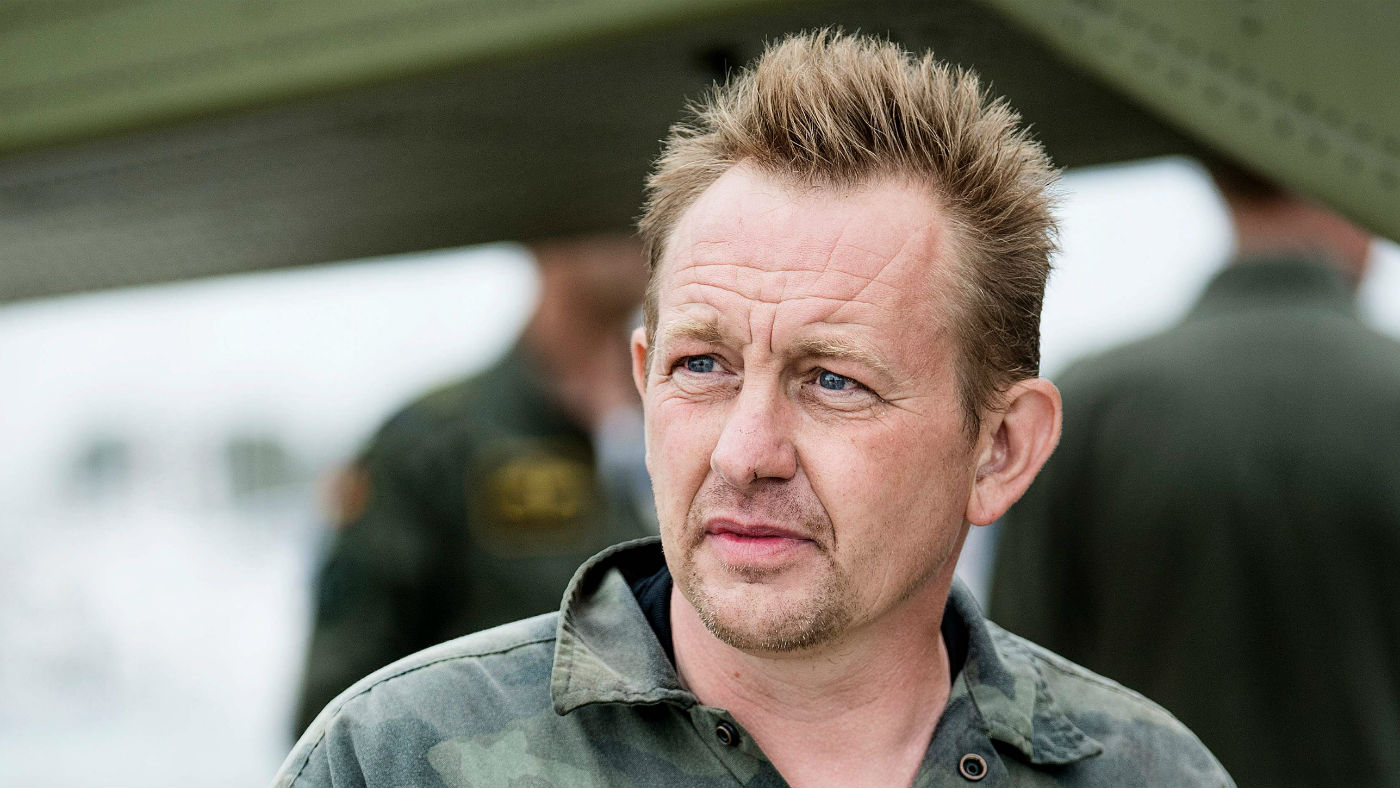Danish inventor Peter Madsen admits dismembering Swedish journalist
Madsen changes his story for a fourth time but continues to deny murder

A free daily email with the biggest news stories of the day – and the best features from TheWeek.com
You are now subscribed
Your newsletter sign-up was successful
The Danish inventor accused of murdering a Swedish journalist who was interviewing him on his homemade submarine has admitted dismembering her body, but still denies killing her.
Peter Madsen told police he had mutilated the body of freelance journalist Kim Wall after she accidently died of carbon monoxide poisoning aboard his submarine while he was out on deck. However, this is the fourth time he has changed his story about how she died after her headless torso was found floating in Koge Bay off Copenhagen.
After intentionally sinking his submarine early on 11 August, he was picked up by a rescue vessel and told police he had dropped Wall off on land after their interview the previous evening.
The Week
Escape your echo chamber. Get the facts behind the news, plus analysis from multiple perspectives.

Sign up for The Week's Free Newsletters
From our morning news briefing to a weekly Good News Newsletter, get the best of The Week delivered directly to your inbox.
From our morning news briefing to a weekly Good News Newsletter, get the best of The Week delivered directly to your inbox.
Remanded in custody, Madsen changed his story to say a hatch had fallen on her head, killing her, and he had panicked and thrown her body overboard intact. A post mortem examination found no fractures of Wall’s skull.
Questions still surround what went on aboard the submarine, with Madsen continuing to deny charges of murder and “sexual acts other than intercourse” - a charge stemming from the fact that Wall had 14 stab wounds around her genital area,
Police also said footage of women being tortured, strangled and beheaded had been found on a computer belonging to Madsen. He denied the videos were his, saying the device was used by a number of his staff, including an intern.
CNN reports that police divers have been searching Koge Bay for the last two weeks looking for Wall’s arms - and both her and Madsen’s mobile phones.
A free daily email with the biggest news stories of the day – and the best features from TheWeek.com
-
 Buddhist monks’ US walk for peace
Buddhist monks’ US walk for peaceUnder the Radar Crowds have turned out on the roads from California to Washington and ‘millions are finding hope in their journey’
-
 American universities are losing ground to their foreign counterparts
American universities are losing ground to their foreign counterpartsThe Explainer While Harvard is still near the top, other colleges have slipped
-
 How to navigate dating apps to find ‘the one’
How to navigate dating apps to find ‘the one’The Week Recommends Put an end to endless swiping and make real romantic connections
-
 Epstein files topple law CEO, roil UK government
Epstein files topple law CEO, roil UK governmentSpeed Read Peter Mandelson, Britain’s former ambassador to the US, is caught up in the scandal
-
 Iran and US prepare to meet after skirmishes
Iran and US prepare to meet after skirmishesSpeed Read The incident comes amid heightened tensions in the Middle East
-
 Israel retrieves final hostage’s body from Gaza
Israel retrieves final hostage’s body from GazaSpeed Read The 24-year-old police officer was killed during the initial Hamas attack
-
 China’s Xi targets top general in growing purge
China’s Xi targets top general in growing purgeSpeed Read Zhang Youxia is being investigated over ‘grave violations’ of the law
-
 Panama and Canada are negotiating over a crucial copper mine
Panama and Canada are negotiating over a crucial copper mineIn the Spotlight Panama is set to make a final decision on the mine this summer
-
 Why Greenland’s natural resources are nearly impossible to mine
Why Greenland’s natural resources are nearly impossible to mineThe Explainer The country’s natural landscape makes the task extremely difficult
-
 Iran cuts internet as protests escalate
Iran cuts internet as protests escalateSpeed Reada Government buildings across the country have been set on fire
-
 US nabs ‘shadow’ tanker claimed by Russia
US nabs ‘shadow’ tanker claimed by RussiaSpeed Read The ship was one of two vessels seized by the US military